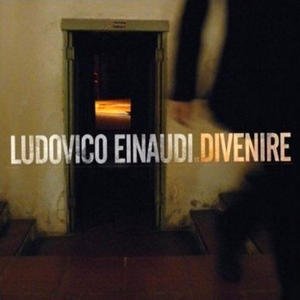Ludovico Maria Enrico Einaudi OMRI (born 23 November 1955) is an Italian pi… Read Full Bio ↴Ludovico Maria Enrico Einaudi OMRI (born 23 November 1955) is an Italian pianist and composer. Trained at the Conservatorio Verdi in Milan, Einaudi began his career as a classical composer, later incorporating other styles and genres such as pop, rock, folk, and world music.
Einaudi has composed the scores for a number of films and television productions, including This Is England, The Intouchables, I'm Still Here, the TV miniseries Doctor Zhivago, and Acquario (1996), for which he won the Grolla d'oro. His music was used as the score for the Golden Globe and Academy Award-winning films Nomadland and The Father.
He has also released a number of solo albums for piano and other instruments, notably I Giorni in 2001, Nightbook in 2009, and In a Time Lapse in 2013. On 1 March 2019, Einaudi announced a seven-part project named Seven Days Walking, which was released over the course of seven months in 2019.
In 2005, he was appointed an Officer of the Order of Merit of the Italian Republic.
Einaudi was born in Turin, Piedmont. His father, Giulio Einaudi, was a publisher working with authors including Italo Calvino and Primo Levi, and founder of Giulio Einaudi Editore, while his paternal grandfather, Luigi Einaudi, was President of Italy between 1948 and 1955. His mother, Renata Aldrovandi, played the piano to him as a child. Her father, Waldo Aldrovandi, was a pianist, opera conductor, and composer who emigrated to Australia after World War II.
Einaudi started composing his own music as a teenager, first writing by playing a folk guitar. He began his musical training at the Conservatorio Verdi in Milan, obtaining a diploma in composition in 1982. That same year he took an orchestration class taught by Luciano Berio and was awarded a scholarship to the Tanglewood Music Festival. According to Einaudi, "[Luciano Berio] did some interesting work with African vocal music and did some arrangements of Beatles songs, and he taught me that there is a sort of dignity inside music. I learnt orchestration from him and a very open way of thinking about music." He also learned by collaborating with musicians such as Ballaké Sissoko from Mali and Djivan Gasparyan from Armenia. His music is ambient, meditative, and often introspective, drawing on minimalism and contemporary pop.
Einaudi has composed the scores for a number of films and television productions, including This Is England, The Intouchables, I'm Still Here, the TV miniseries Doctor Zhivago, and Acquario (1996), for which he won the Grolla d'oro. His music was used as the score for the Golden Globe and Academy Award-winning films Nomadland and The Father.
He has also released a number of solo albums for piano and other instruments, notably I Giorni in 2001, Nightbook in 2009, and In a Time Lapse in 2013. On 1 March 2019, Einaudi announced a seven-part project named Seven Days Walking, which was released over the course of seven months in 2019.
In 2005, he was appointed an Officer of the Order of Merit of the Italian Republic.
Einaudi was born in Turin, Piedmont. His father, Giulio Einaudi, was a publisher working with authors including Italo Calvino and Primo Levi, and founder of Giulio Einaudi Editore, while his paternal grandfather, Luigi Einaudi, was President of Italy between 1948 and 1955. His mother, Renata Aldrovandi, played the piano to him as a child. Her father, Waldo Aldrovandi, was a pianist, opera conductor, and composer who emigrated to Australia after World War II.
Einaudi started composing his own music as a teenager, first writing by playing a folk guitar. He began his musical training at the Conservatorio Verdi in Milan, obtaining a diploma in composition in 1982. That same year he took an orchestration class taught by Luciano Berio and was awarded a scholarship to the Tanglewood Music Festival. According to Einaudi, "[Luciano Berio] did some interesting work with African vocal music and did some arrangements of Beatles songs, and he taught me that there is a sort of dignity inside music. I learnt orchestration from him and a very open way of thinking about music." He also learned by collaborating with musicians such as Ballaké Sissoko from Mali and Djivan Gasparyan from Armenia. His music is ambient, meditative, and often introspective, drawing on minimalism and contemporary pop.
L'origine nascosta
Ludovico Einaudi Lyrics
We have lyrics for these tracks by Ludovico Einaudi:
Ferma Zitella Ferma zitella ca si carcerata quandu ca t'aggiu ncontrata, m…
Fimmene Fimmene fimmene Ca sciati allu tabaccu 'Nde sciati doi E ne …
Taranta INSTRUMENTAL Ci è Taranta dagni nu culore Ci è Taranta dagn…
The lyrics are frequently found in the comments by searching or by filtering for lyric videos
More Genres
No Artists Found
More Artists
Load All
No Albums Found
More Albums
Load All
No Tracks Found
Genre not found
Artist not found
Album not found
Search results not found
Song not found

sikeres légy a kurvák közt
His music is like when you experience an adventure as a child... It's just pure magical.
CherryZzz
agreed
Bernadeta Urbonaite
So true!
Wesley Morris
bueno
Kelsey Rosgen
Well said!
Milenka
Like a crystal snow falling in the air so slowly
Rubenya
With the music of Ludovico we can connect with the deepest part of our being, with our true essence. With his music we can transcend, forget about space, time and matter.
Dot Comma
When I was little my parents would get me to sleep by putting this music on; I haven't heard it in 10 years but whenever I hear it I get a feeling of nostalgia.
Nij the Barber
One of the most beautiful transcending and timeless thing i have ever let my ears be exposed to....simply bliss
Júlia Almendra
I love your songs so much! I listen to them to study, to relax, to think about life... For everything, hahaha. God bless you for this, Einaudi. Thank you so much for this gift ❤️❤️